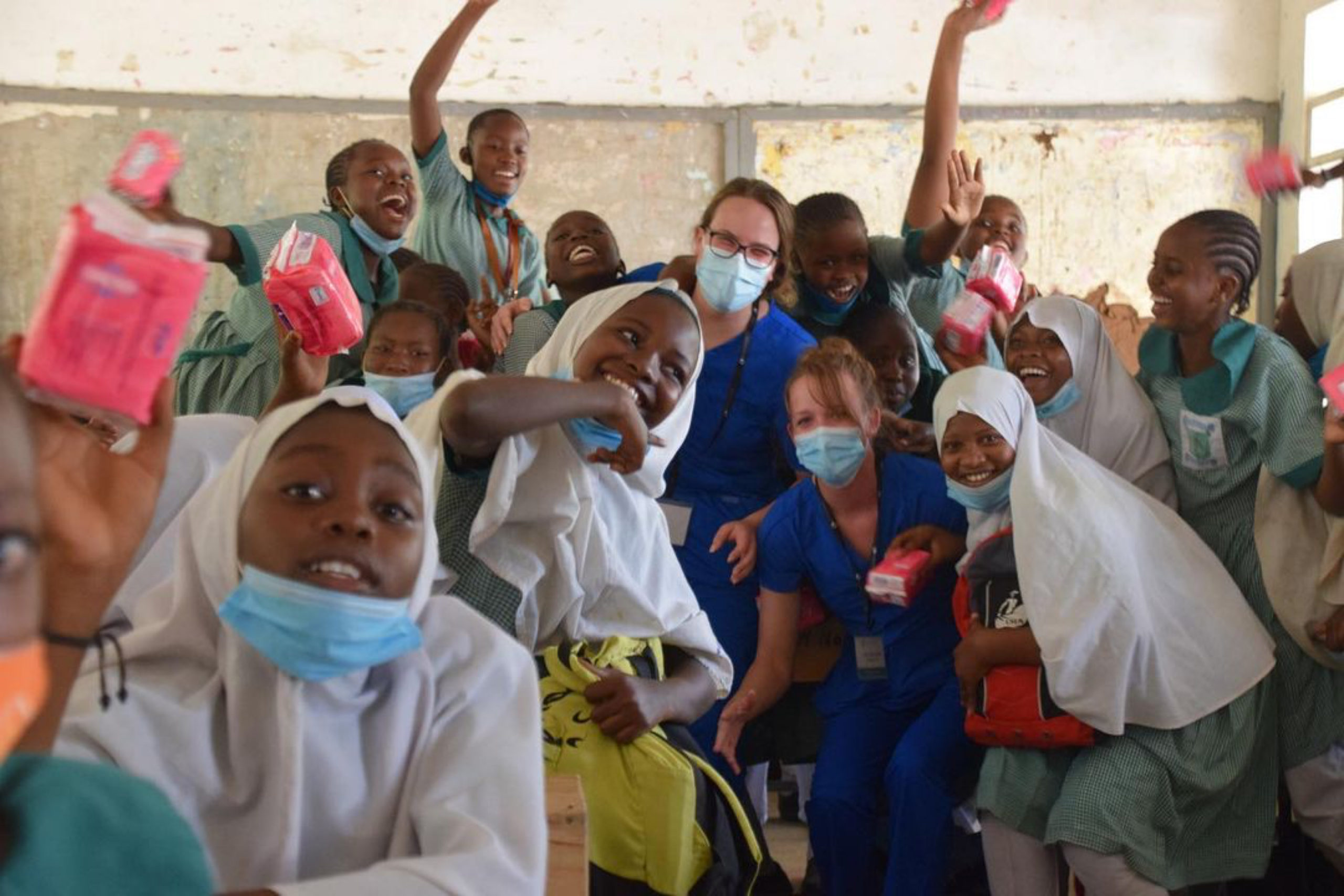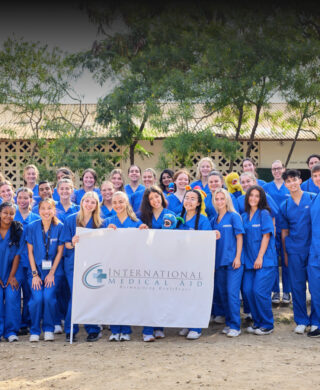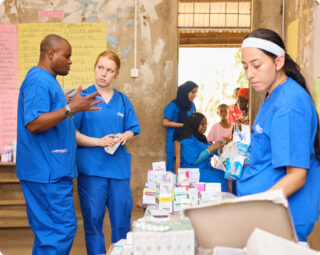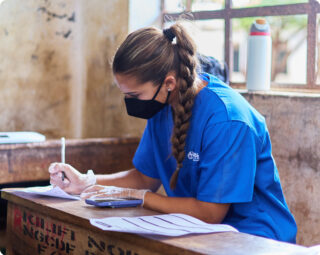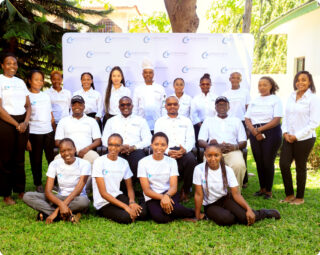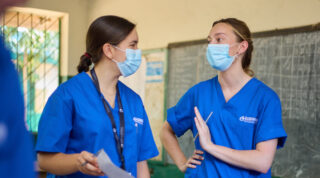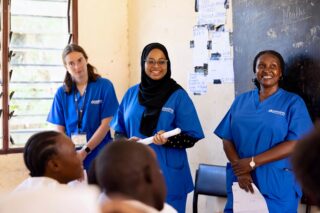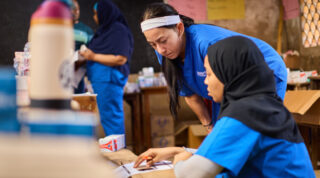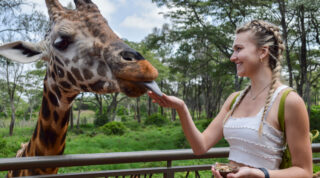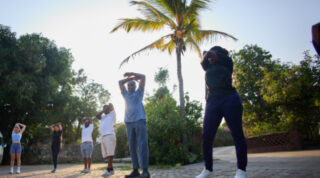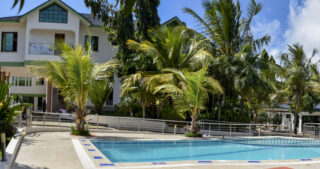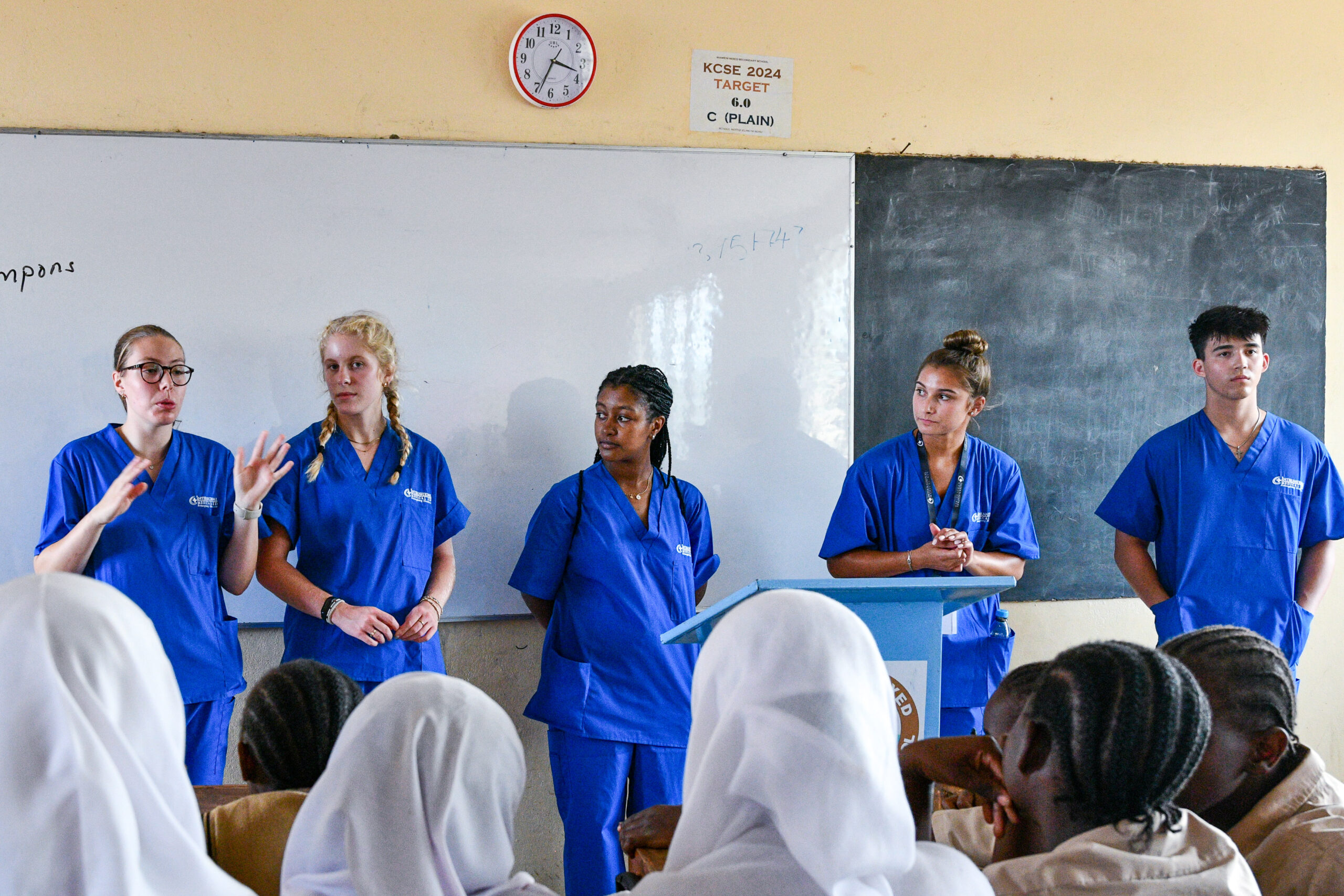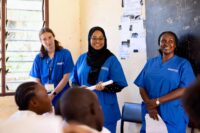Participant Feedback

My time in Kenya was a whirlwind of some of the best memories, friends, and experiences that I will never forget. From night shifts, weekend treks, to community outreach opportunities, my internship taught me valuable lessons that I will carry with me as I pursue a career in medicine, and I am so grateful for the mentors I had the opportunity to learn from at Coast General.

Katie Fairhurst
University of Pittsburgh
Participant Feedback

I stumbled upon International Medical Aid’s website while looking for an opportunity to gain experience in the healthcare field. This program stood out to me because the internship was unique in providing insight to specific health care roles. As a Pre-PA student, my experience up to this point was limited to working as a nursing assistant in a brain injury rehab and in an emergency room. Although these experiences were valuable in forming the foundation for my career goals, there was a whole other side of healthcare that I had yet to see. I was curious to learn more about how healthcare in other countries differed from that of the USA. Out of curiosity, I decided to apply for International Medical Aid’s pre-pa internship. After a few months, I received the news that I was accepted. I was terrified, but excited at the same time. I had never traveled alone, but I needed to push past my comfort zone and learn more about the world outside of my two-story suburban home. Without hesitation, I booked my ticket and flew to Mombasa, Kenya.

Shana Thomas
Texas Tech University
Participant Feedback

Medicine has always been my passion, however the road to get into medical school is a tough and competitive one. My purpose for volunteering abroad was to learn, encourage, and remind myself the reason why I decided to take this road. Being a pre- med student in Canada can sometimes get discouraging since we get absolutely no clinical experience or courses related to medicine, besides basic science. Even volunteering opportunities at hospitals are narrow and not really hands-on. Having said so, I will be forever grateful for the opportunities that International Medical Aid offered me and the inspiration and courage they seeded in me to pursue my dream with more determination than ever. The reason why I have chosen medicine is to help others to the best of my abilities. I was born and raised in Honduras, also a developing country, and ever since I participated in brigades there, I was motivated to dedicate my life to serving those in need. World Health has always been an interest of mine, so I was thrilled to get to know Kenya and have the opportunity to immerse in a healthcare setting that I was not accustomed to. This internship not only challenged me but also gave me significant insight and preparation to work under difficult circumstances and scarce resources.

Alejandra Rivera
Kwantlen Polytechnic University
Participant Feedback

In July of 2019, I went to my first health-related experience abroad as a medical student. I spent four weeks in Mombasa, Kenya, shadowing physicians from the country’s second-largest public hospital, and learning about the Kenyan culture and healthcare system. My goal through this experience was to learn and understand how a country, different than my own, manages public healthcare, to perceive how culture plays a part in healthcare, and precisely what role I can assume, as a future doctor, to better global health care. I firmly believe that a great doctor cannot be limited to their home surroundings to treat a patient holistically. They must be knowledgeable about different cultures and beliefs and the way that disease manifests in different ethnicities and backgrounds. My trip to Kenya had the sole objective of putting me on the path to becoming, what I regard as a great doctor.

Anna Marduy
União Metropolitana de Ensino e Cultura
Parent Feedback

As the mother of Jill Putnam, it is my pleasure to write a letter in support of her application for the IMA Alumni Scholarship competition based on her Pre-Medicine Internship in East Africa in the fall of 2022.
Unbeknownst to me, Jill had been researching internship opportunities for some time before applying to IMA. She impressed me with the information that she had gathered and the reasons for her interest in the program. Jill has always been known as “an old soul” with a deep compassion for others. I was not surprised that she wanted to learn more about the health care system in East Africa, and to learn what she could about the quality of care and the ability of citizens to access such care. Her primary goal in applying for the internship was to expand her world view and be better equipped to engage with a health care system that is different from ours in Canada.
I was impressed by the steps she took to achieve these goals, as evidenced by her requests to participate in extra opportunities such as rotations in the oncology clinic and the gender and sexual-based violence recovery clinic, neither of which are traditionally offered to pre-medicine interns. She immediately expressed to me how much she appreciated both and that she found the experiences to be very valuable.
She also undertook a fundraising campaign to raise money for a severely injured motor vehicle accident victim who could not afford the care that he was receiving without insurance.
Learning about the cost of universal health insurance in Kenya – a pittance by our standards but prohibitively costly for most Kenyans – was an eye opener for her and a real motivator to put her care and concern to practical use by being able to provide ongoing health care insurance for this patient.
Jill also found the cancer clinic experience to be relevant in the context of seeing “up close and personally” the differences in health care systems, as she has had experience with my recent stage IV cancer diagnosis and treatment.
Going forward, Jill has applied to do a Master’s degree program in epidemiology. Her proposed topic of research is to study how social disparity influences the quality of health care for pregnant women in Canada. I am certain that Jill’s experience during her East Africa internship has been influential in her choice to pursue this path.
Thank you for considering this letter with her application.
Parent Feedback

I’m writing this testimonial at the request of my daughter, Katie Fairhurst, who completed two IMA internships at Coast Provincial General Hospital in Mombasa, Kenya, during the summers of 2018/2019. In the way of background, I worked for 16 years at the US National Institutes of Health, where I studied malaria in Mali, Ghana, and Cambodia. While growing up, Katie witnessed each of my 50 departures to the African continent and often wondered why I went there. “To meet malaria in person,” I would reply.
When Katie applied to college, I learned that she had been following my career with more interest than I imagined. In her admission essay, she spoke of me as her inspiration for wanting to become a doctor, and in selecting the University of Pittsburgh for her undergraduate education, she cited its medical center’s reputation as a top‐ranked acute care facility. I knew she wanted to be a doctor, but never asked her why. By her age, I had already volunteered 3000 hours in an emergency room in Northern California. As she had no such experience, I encouraged her to find clinical opportunities in Pittsburgh. When Kate discovered that Pitt could not provide her sufficient clinic exposure due to her level of training, she was determined to find opportunities elsewhere, eventually settling on IMA in Mombasa.
When Kate informed me of her interest in IMA, she had already planned and budgeted her trip. After reviewing IMA’s website and discussing a few things with a program coordinator, I readily approved of her new adventure, including her traveling alone at the age of 17. Having spent much time in underdeveloped countries with limited resources and lots of surprises, I knew exactly what she was getting into and how it would affect her for a lifetime. My last words to her as she descended the escalator at Dulles International Airport were “You’ll want to return the moment you get back.” I was right. Within weeks of returning home, she had already scheduled and budgeted next summer’s trip.
During her time in Kenya, Katie learned more about the art of medicine and the culture of Africa than I could ever have taught her myself. She learned that one must improvise in under‐resourced settings, persevere in challenging circumstances, and stay optimistic in horrendous situations. IMA provided Katie an opportunity to be directly involved in patient care, to see advanced, untreated pathologies, and to experience the hard work and long hours it takes to properly care for patients. Kate also experienced a culture radically different from, yet surprisingly similar, to her own. She returned from her Kenya trips a completely changed individual, no longer a novice but a veteran, no longer a girl but a woman. She is currently applying to medical school with new senses of purpose, confidence, and resilience. While friends and family hardly recognized Katie, I knew exactly how Africa and its people would transform her – for the better. IMA is by far the most impactful and worthwhile investment I’ve made in my daughter.
To IMA’s leadership and staff, I want to say thank you for supporting my daughter, welcoming her back, assuring her safety, and giving her opportunities to discover for herself why she wants to be a doctor, why she wants to develop an international career, and why she wants to serve an underserved community. Once she gets accepted to medical school this year, I suspect you’ll be seeing her again.
Parent Feedback

Erin applied to the IMA Africa program to learn more about the medical field that she has been going to school for and aspires to work in one day. I do not think she expected the experience that she received. We are so grateful that she had such a wonderful opportunity and experience.
We would talk to Erin by phone or video chat several times a week to hear all about what she was doing. We have never heard her so excited to discuss the things she had not only seen but was able to be a part of. Erin arrived in Mombasa one week early due to changes in the flight schedule but didn’t want to sit around. Luckily, her mentors took care of that and placed her in the Newborn Unit, where she spent her time mostly in the Neonatal High Dependency Unit. Erin had never thought she had a passion for neonatal medicine, but soon realized that this was part of a huge passion she had for combined Maternal-Fetal medicine.
Erin’s drive to make the most of the experience helped her to understand and confirm her passion. She picked up extra night shifts to be able to be there for more births and to experience a different environment that the night shift offers. Erin also loved her time in CT scan where she learned so much more than she expected, with the doctors and technicians helping and teaching her. Erin was also offered and took on the responsibility of helping to orient new interns to the house and hospital. Erin truly enjoyed meeting and getting to know lifelong friends in the other interns and the hospital employees.
Everything about IMA - from the professionalism, organization for travel, accommodations, food and transport, to the mentors at the hospital, the doctors, and the staff - were all first class. We never at any time were worried about Erin’s safety. Cristabel, Erin’s mentor, is one of the best assets of IMA and did an incredible job organizing everything.
I know that one day we may lose Erin to Mombasa as she hopes to be able to continue her education and someday return there to work as a doctor.
We hope this helps describe the outstanding experience Erin had in IMA. She has been back at her school now and has been speaking of her experience to anyone who will listen. She has suggested to all officials at her school that if anyone wants an experience of a lifetime that will teach them so much, they must consider IMA.

David and Mary Joan Braxton

